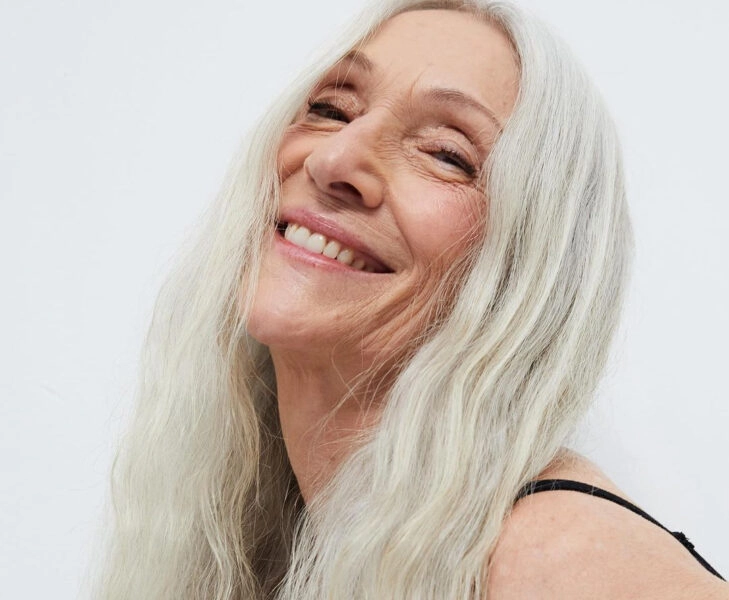This is the age at which the body begins to truly age.


Science has proven that the aging process is not linear. PHOTO: Instagram @pino_montesdeoca
Body
According to a Stanford University study, the body experiences significant decline in two very specific periods: at 44 and 60 years of age.
Sarah Flamenco
October 7, 2024 / 07:47
Aging natural and inevitable process. Over the years, some abilities deteriorate, both cognitive and physicalwhich can make daily life even more tiring. This fact, coupled with the gradual increase in life expectancy, explains why we are increasingly concerned about achieving quality aging. Hence, we adopt habits such as eating a balanced diet, exercising regularly and monitoring our cognitive abilities to keep the brain functional.
More and more often Science is trying to find the keys to aging. And researchers have discovered two peaks at which the body ages dramatically. A study from Stanford University in the US identified two ages at which the body ages radically: at 44 and 60 years old. A study published by the journal Nature shows that 44-year-old people have completely different molecules than younger people, a clear sign that the body is changing and aging.
This study shows that after age 44, body functions noticeably decline. It is for this reason that the chances of receiving heart problemsIn addition to the fact that the body takes longer to eliminate alcohol and caffeine, the condition of the skin and muscles deteriorates more gradually. This process repeats at age 60when the molecular pattern repeats itself. In this case, the consequences are different, increasing the likelihood of developing kidney failure, type 2 diabetes and even immunodeficiency.
Aging is not linear
Stanford scientists measured the molecular activity of their study participants for nearly two years. The various samples they received formed some 246 billion biomarkers that the team was able to contrast. “Our goal was to find out when the most frequent changes and changes occur. at the molecular and biochemical level“explains Michael Snyder, co-author of the study and director of the Department of Genetics at Stanford University. The results show that 81% of the molecules they didn’t change constantly (as would be expected with linear aging), but they transformed significantly between the ages of 44 and 60 years.
Different changes at 44 and 60 years old
At age 44, some of the observed changes occurred in cells that influence metabolismwhich could explain why caffeine and alcohol are more difficult to absorb and process from this age. Additional changes were also found in adipose tissue proteinswhich could explain the higher cholesterol levels and weight gain at this age. And changes were also noticed in connective tissue proteins associated with the structure of the skin and muscles, which causes the skin to sag and more wrinkles to appear.
At age 60, the team observed more molecular changes associated with kidney function and immune health. This, Snyder says, may explain why older people are more vulnerable to diseases like COVID-19, and why rates of cancer, kidney problems and heart disease rise so sharply around age 60.
How to delay the effects of aging
Opportunity delay the biological clock This is something that has been the subject of study for many years. Researcher David SinclairProfessor of genetics and co-director of the Paul F. Glenn Center for Research in the Biology of Aging at Harvard Medical School, has been working on this topic for many years. His work focuses on epigenetics and preventing signs of aging at the cellular level. Throughout his professional career, Sinclair has developed treatments to slow down the aging process:
1. Eliminate sugar: According to Sinclair, high blood sugar increases the risk that proteins undergo a harmful process called sugar binding. According to their research, this process will accelerate aging.
2. Reduce your bread consumption: Carbohydrates also cause blood glucose levels to rise, Sinclair says. In the long term, the effect of glucose on our body is a breeding ground for many chronic diseases, such as type 2 diabetes or coronary heart disease.
3. Reduce your meat consumption: Dr. Sinclair advocates increasing consumption of plant proteins, which stimulate genes such as sirtuins, which may promote longevity. Another good option is fish, which, due to their omega-3 fatty acid content, promotes improved health and longevity.
4. Alcohol has run out: The World Heart Federation notes that any level of alcohol consumption can lead to poor health. Research has shown that even small amounts of alcohol can increase the risk of developing cardiovascular disease.
5. Smoking is prohibited: Tobacco is the most toxic element among all those that we regularly consume. It causes problems throughout the body, not just at the lung level: it is associated with pathologies such as cancer of the larynx, stomach, pancreas or bladder.
6. Intermittent fasting. Sinclair doesn’t put much emphasis on breakfast and prefers to fast for 16 to 18 hours. This way, according to the expert, you give your gut more time to digest food, which benefits your microbiota.
7. Increase physical exercise: As Marcos Vazquez, creator of Fitness Revolucionario, notes, “exercise is the habit that has the most positive impact on the quality of aging.” To counteract the loss of muscle and bone mass that occurs with age, it is best to opt for strength training.
